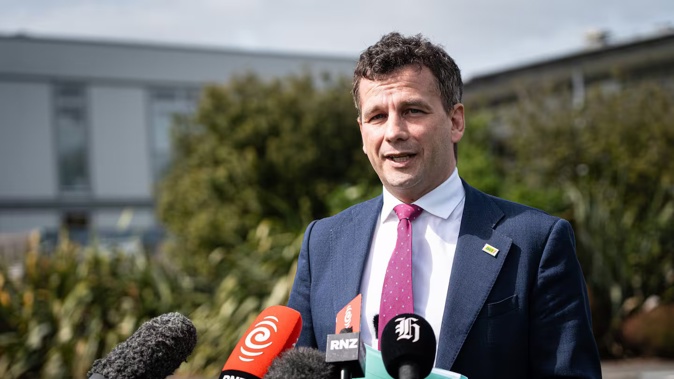
Associate Education Minister David Seymour says around half of the 78 applications for charter schools are unlikely to be successful as the Government prepares for up to 15 new charter schools to open early next year.
A charter school is a state-funded school that operates on a 10-year contract and can set its own curricula, hours and governance structures.
Charter schools have operated before in New Zealand – they were introduced in 2014 by Act and abolished in 2018 under Labour, who see them as an ideologically driven move that undermines the public education system.
When the legislation enabling charter schools to be re-established passed in Parliament this week, Labour called schools an “absolutely horrific ideological experiment that has failed in this country once before”.
Education union the PPTA strongly opposes the plans, saying the $153 million funding would be better spent addressing issues within the state school system.
The money covers the establishment of 15 new charter schools and the conversion of 35 existing schools to charter status.
Seymour said the 15 new schools could open for term one next year if they were ready, but it was more likely they would open for 2026.
David Seymour, with Christopher Luxon, supports charter schools. Photo / RNZ
He said the Charter School Agency, which makes recommendations around whether a school should be approved or declined charter school status, has preliminarily assessed the 78 applications and recommended that around half of them should be declined.
“Just under half of them have been told that they’re probably not going to get there this time.”
The remaining 40 odd applications would now be assessed again.
“It’s probably another month until they make final decisions, then start signing the contracts and so on.”
Speaking on Q+A with Jack Tame, Seymour said he didn’t expect any converted state schools to be ready to open next year as the process of conversion was complex.
“There could well be up to 15 [new schools opening next year]. It depends, first of all, on whether there are 15 that the authorisation board decides to put through on the first day and second of all, if the ones that they say are good enough out of that 78 to start straight away, are they ready to start?”
The charter school legislation includes a provision that the Government could force an underperforming state school to convert to a charter school.
Seymour told Q+A with Jack Tame this could include schools that were already facing intervention from the Ministry of Education.
Asked how many charter schools he thinks could operate in New Zealand in the future, Seymour referenced the United Kingdom where 80% of secondary schools were charter schools, saying “anything the Brits can do, we can do”.
President of education union the PPTA Chris Abercrombie has previously said charter schools were a direct import from the United States and UK and there was no evidence that they worked.
“This is in stark contrast to Associate Education Minister David Seymour’s insistence on evidence being required for Ka Ora, Ka Ako to continue.”
In May, Seymour announced funding for New Zealand’s free school lunches programme would be cut back by about $107 million a year with a new no-frills school lunches programme.
“It seems that a huge amount of money is about to be poured into a vanity project at the same time as the Government says it can’t afford to continue providing lunches for students in need,” Abercrombie said.
Julia Gabel is a Wellington-based political reporter. She joined the Herald in 2020 and has most recently focused on data journalism.
Take your Radio, Podcasts and Music with you









